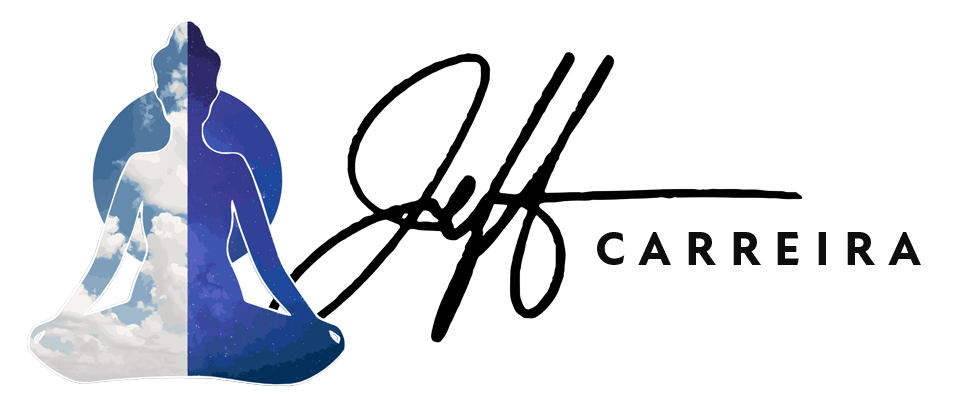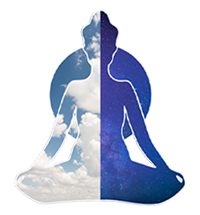
We are all born into a preexisting paradigm. A paradigm that consists of all of the unconscious assumptions we hold that tell us what is real and how reality works. One of the most foundational of those is the assumption that we operate in the world through the power of individual achievement.
We see ourselves as beings that affect change in the world by making independent decisions and then acting on them. We operate by using our minds to imagine new possibilities, set goals, and create plans and then we take action to achieve those goals.
Of course we all know the world pushes back. Things happen that thwart our plans and sometimes other people are busy enacting plans in ways that counter our own. And yet, we go on day after day, imagining new possibilities and strategizing how to bring them to life.
This happens in small ways like when we imagine milk in our refrigerator and plan to walk to the store on the corner to get some. It also happens in big ways like when we decide to become a doctor and contemplate which colleges and universities we should attend.
Paradigms are built up from assumptions layered one upon the other. The deeper you go into the belief system that underlies the current paradigm the bigger the shift you catalyze.
Shifts in paradigm always come in the form of expansions of the range of possibility available to us. To illustrate, let’s imagine we are planning to attend Harvard Medical School in Massachusetts and that our mother and father are both doctors who graduated from Harvard. We have assumed we would go to Harvard to study medicine for as long as we can remember.
We could see this as a paradigm. Maybe we question going to Harvard. Suddenly a range of possibility opens to us. We could go to Stanford in California, or Rice University in Texas. We could even go to a university in a country outside the United States. This would be a shift in paradigm for us.
If we questioned a little deeper we might wonder if we should be a doctor in the first place. Suddenly we could be an artist, or a carpenter, or a circus performer. Maybe we would travel to India to seek enlightenment. The range of possibility would open up very wide.
Our Western culture currently has an influence, for better and worse, that spreads across the entire globe. Many of us see that we have reached the limits of what I am calling the Independent Achiever paradigm. It seems no longer capable of effectively responding to the complexity of the world. The massive impact we are having on the ecology of this planet, and the precarious state of the social and economic systems that support human life, make it clear that something big needs to change.
Many would agree that nothing less than a shift in paradigm will generate the scale of transformation that our world needs. We simply cannot find a way to effectively navigate into the future from inside our current individual achiever operating system.
My assertion is that the foundational assumption that we are ‘individuals achieving goals' has to be questioned. As soon as we open up this line of questioning we see how embedded we are in the current paradigm. After all, isn’t the desire to shift into a new paradigm just another goal I am trying to achieve?
How is it possible to question the existing paradigm from inside of it? What kinds of questions can an individual achiever ask that will lead to the realization that they are not an individual achieving entity?
The place we can start to look is beneath the assumption of being an individual achiever to an even deeper assumption. This is the assumption that the thoughts and feelings that I experience belong to me. This is an assumption that we can question and that people have questioned for thousands of years.
We commonly speak of my mind, my thoughts, my feelings, my ideas, etc. But what makes us believe they belong to us? One of the main reasons we think this is because we experience them and no one else does. So we assume they happen inside of us and because they happen inside us we assume they belong to us.
It is interesting to consider that people didn’t always experience an inner world of personal thoughts and feelings. At different times in human history and in some cultures today people experience those ‘inner’ voices as coming from outside of themselves originating in spirits or deities, or from the animals and plants of the Earth itself.
We tend to think of this as primitive and less developed, but maybe it’s just different. The idea that our thoughts come from outside of us seems superstitious, but that is because there was a concerted effort to make it seem that way as Western culture moved from the Middle Ages into the Enlightenment.
If we start to ask the right questions we can make our common perception of a private inner world start to look pretty suspect. Let’s start with an analogy. Right now my fingers are typing out these words, but I don’t think my fingers are writing this essay. I think that I am writing it. It is obvious to me that my fingers are a part of me and that it is the whole of me that writes essays.
Similarly if we were talking it would be obvious to me that it wasn’t my mouth talking to your ears. It is the whole of me talking to the whole of you. When I see you standing in front of me I know that it is more than my eyes that see you.
It is obvious to us that the lines of division that appear to separate our fingers, mouths and eyes from the rest of us are not real and yet we believe in the line that separates us from the rest of the world. On what grounds do we hold this as a real division?
Why am I separate from the ground under my feet? or the air that I breathe? or the food that I eat?
We can’t even exist without those things. How long would we exist floating out in space?
Physically we are inextricably one with this planet. Why would we assume that we are mentally separate?
When I walk outside and think about what a beautiful sunny day it is, am I having a thought independent from the beautiful sunny day? Is that thought arising in me separate from the day itself or is the thought an aspect of the day?
Your thoughts, feelings and emotions never arise in isolation – they always arise in relationship to circumstances. Those circumstances might be physical like walking outside on a beautiful day, or they might be the mental circumstances created by past memories and experiences. Either way thoughts don’t just appear magically out of thin air. They emerge out of circumstances.
The New Paradigm will include a deep recognition of the fact that everything that exists comes into existence as part of a larger circumstance. This is not just an idea to understand – many of us already understand it.
To initiate a true paradigm shift we must question our assumptions of separation so deeply that we shift our perception of reality. Our nervous systems need to be rewired so that we experience ourselves as beings emerging out of circumstances and we see everything that we create and achieve as extensions of those circumstances rather than personal achievements.
We must continue to dissolve all of the imagined boundaries that limit us until we discover that ultimately there is no boundary that separates anything from anything else. As we let go of more and more of the assumptions that isolate us we will feel oneness with all that is.
We will not just know that all is one, we will feel it. We will, in a way that we cannot yet imagine, feel the rippling effects of our being through the universe. We will have become a universal being. We will move in accordance with universal prompts. We will no longer experience ourselves making independent decisions in isolation from each other, the world or the universe. We will be whole.


